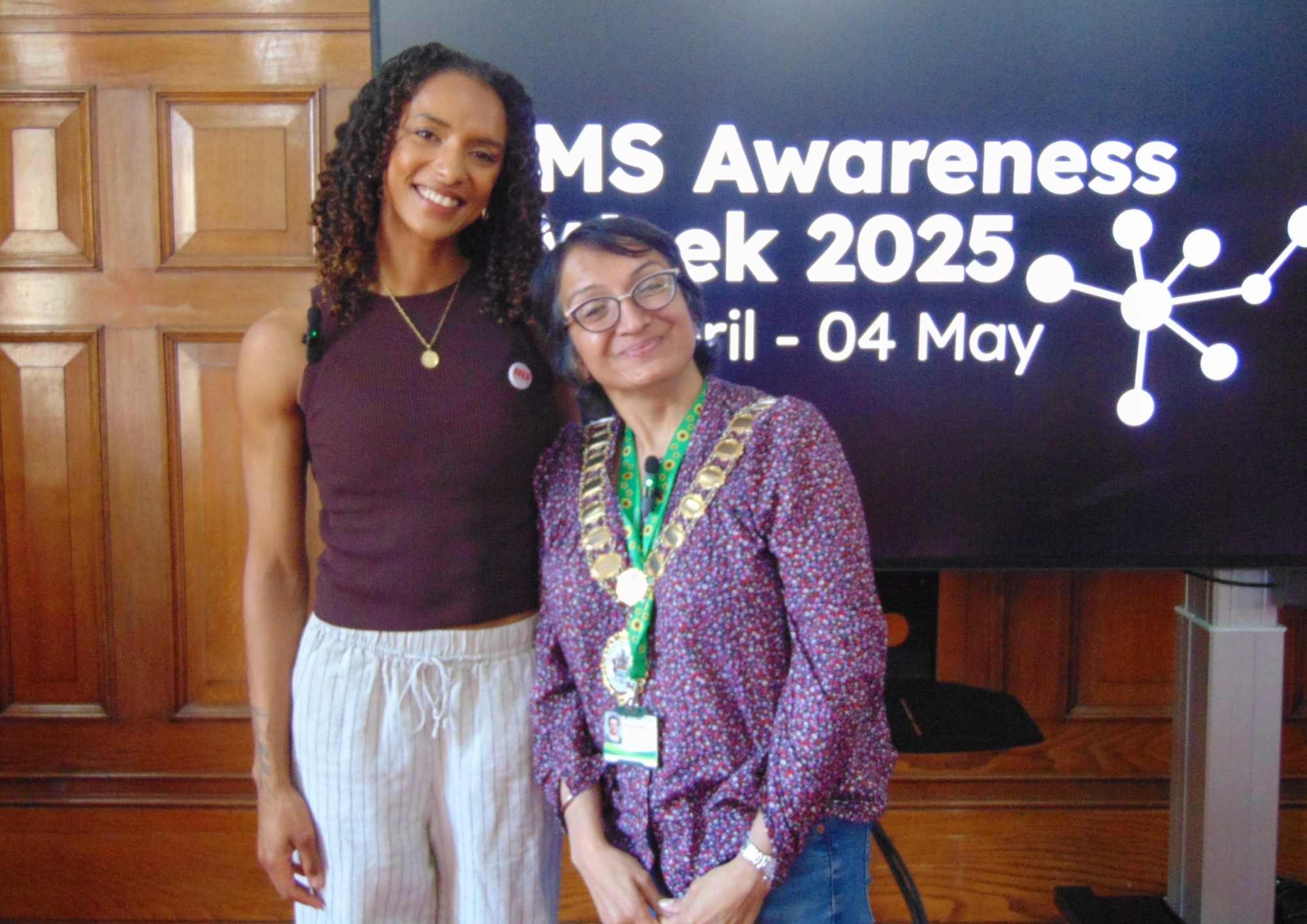Olympic hero Lina urges more conversation about MS
'I hope it gets to a point in the future where you can say ‘I have MS’ and that’s all you need to say and people have a clear understanding of how it affects people and what it is'
Monday, 12th May 2025 — By Daisy Clague

Lina Nielsen with the Mayor of Islington Anjna Khurana who both live with MS
AN Olympic runner with multiple sclerosis who went to school in Islington spoke at the Town Hall of the need for more conversations about the degenerative condition – and why the conversations with herself are some of the most important, writes Daisy Clague.
Team GB medallist Lina Nielsen, who won bronze at the Paris Olympics in the 4x400m relay with her identical twin sister, joined Mayor of Islington Anjna Khurana as part of MS Awareness Week to discuss the condition that both women – and more than 150,000 people in the UK – live with.
The event was organised as part of MS Awareness Week by a group of leading MS charities, including the MS Society.
MS affects the brain and spinal cord, impacting how people move, think and feel.
It can be unpredictable and debilitating, and once diagnosed it stays with you for life.
Ms Nielsen was diagnosed in 2014, aged 17, but went on to compete at an elite level despite the condition.
She said: “Some of the conversations you have with yourself are the most important. You have to be your own therapy and cheerleader after you’ve been diagnosed.
“Since I was diagnosed I’ve split myself into multiple parts – there’s the person with MS, the athlete, the sister, and I nurture all of those parts.
“I didn’t want to be known at school as the ‘girl with MS’ so I kept it private from friends and concentrated on the other parts of me so I’d be known for those attributes and achievements.”
Ms Nielsen, who studied for her A-levels at City and Islington College near Angel, added: “I’ve cried so much in the last year since the Olympics because I just can’t believe I was able to do what I did. It’s complete chance that I have MS and am able to compete at a national level.
“This is why raising awareness of MS is so important because it’s completely different for everyone and I pinch myself every day that my MS hasn’t impacted my ability too much.
“MS is different for everyone and lots of people don’t know that.
“I hope it gets to a point in the future where you can say ‘I have MS’ and that’s all you need to say and people have a clear understanding of how it affects people and what it is.”
Cllr Khurana said her MS diagnosis in 2006 made her realise “you don’t know what’s going on with someone else on the inside”.
She added: “One of the hardest conversations I had was telling my mum about my diagnosis. She was really upset and she said to me, ‘What did I do wrong?’ “What could I say to that? I ended up consoling her and helping her come to terms with it and I was the one who’d just been diagnosed. That was really tough.
“I have become more compassionate and caring since my diagnosis. I appreciate that everyone has their own story and my MS has had a huge influence on who I am and where I am today.”